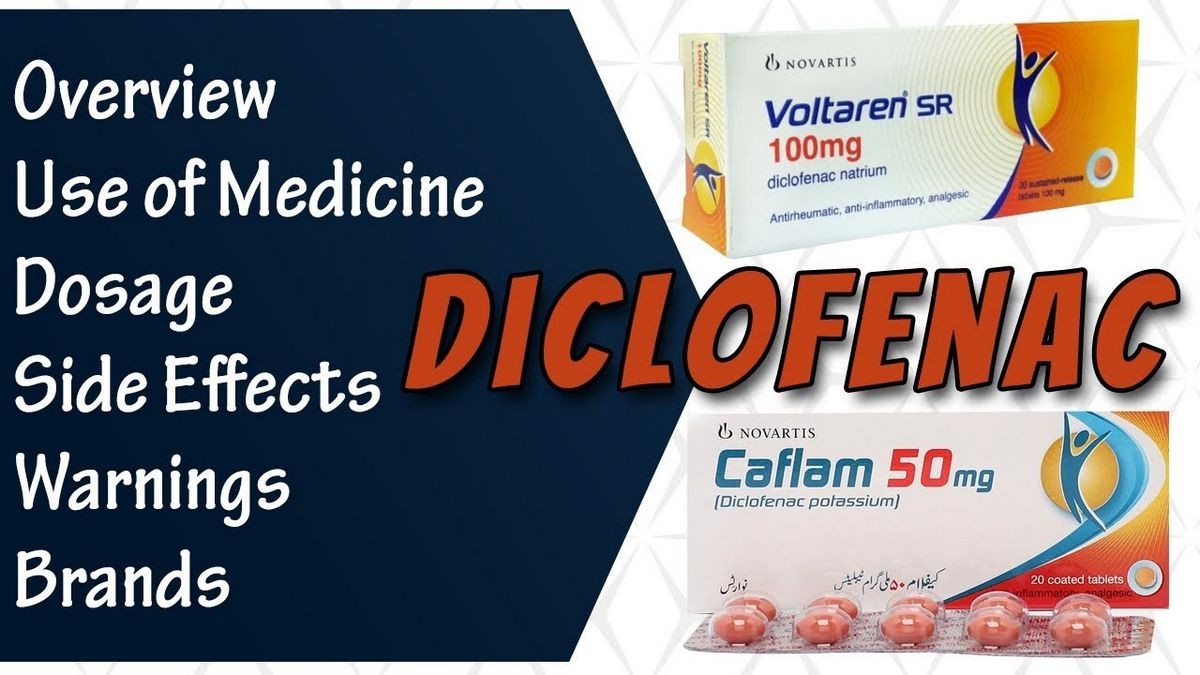
Contents
Side Effects of Voltaren (diclofenac)
NSAIDs reduce the production of prostaglandins, chemicals that cause pain, fever, and inflammation. They block the enzyme that makes prostaglandins, resulting in lower production.
Inflammation, pain, and fever are reduced. Doctors may try different NSAIDs for any condition as the response varies.
Common side effects of Voltaren include stomach ulceration, bleeding (black tarry stools, weakness, and dizziness upon standing), abdominal burning, pain, cramping, nausea, gastritis, and fluid retention.
Serious side effects of Voltaren include gastrointestinal bleeding, liver toxicity, blood clots, heart attacks, hypertension, heart failure, and impaired kidney function.
During pregnancy, Voltaren should be used only when clearly needed. It is not recommended for use during the first and last trimesters due to possible harm to the unborn baby and interference with normal labor/delivery.
It is unknown if Voltaren is excreted in breast milk. Consult your doctor before breastfeeding.
What are the important side effects of Voltaren (diclofenac)?
The most common side effects of diclofenac involve the gastrointestinal system, such as ulcerations, abdominal burning, pain, cramping, nausea, gastritis, bleeding, and liver toxicity. Rash, kidney impairment, ringing in the ears, and lightheadedness are also seen.
Other important side effects include fluid retention, blood clots, heart attacks, hypertension, and heart failure.
People allergic to other NSAIDs should not use diclofenac. NSAIDs reduce blood flow to the kidneys and impair kidney function. Asthma patients are more likely to experience allergic reactions.
Voltaren (diclofenac) side effects list for healthcare professionals
The following adverse reactions are discussed in greater detail in other sections:
- Cardiovascular Thrombotic Events
- GI Bleeding, Ulceration and Perforation
- Hepatotoxicity
- Hypertension
- Heart Failure and Edema
- Renal Toxicity and Hyperkalemia
- Anaphylactic Reactions
- Serious Skin Reactions
- Hematologic Toxicity
Clinical Trials Experience
Adverse reaction rates observed in clinical trials cannot be directly compared and may not reflect rates observed in practice.
In patients taking Voltaren, the most frequently reported adverse experiences are gastrointestinal including abdominal pain, constipation, diarrhea, dyspepsia, flatulence, bleeding, heartburn, nausea, GI ulcers, and vomiting.
Additional adverse experiences occasionally reported include abnormal renal function, anemia, dizziness, edema, elevated liver enzymes, headaches, increased bleeding time, pruritus, rashes, and tinnitus.
Rarely, other adverse reactions occur:
- Body as a Whole: fever, infection, sepsis
- Cardiovascular System: congestive heart failure, hypertension, tachycardia, syncope
- Digestive System: dry mouth, esophagitis, ulcers, bleeding, glossitis, hepatitis, jaundice
- Hemic and Lymphatic System: ecchymosis, eosinophilia, leukopenia, melena, purpura, rectal bleeding, stomatitis, thrombocytopenia
- Metabolic and Nutritional: weight changes
- Nervous System: anxiety, asthenia, confusion, depression, dream abnormalities, drowsiness, insomnia, malaise, nervousness, paresthesia, somnolence, tremors, vertigo
- Respiratory System: asthma, dyspnea
- Skin and Appendages: alopecia, photosensitivity, sweating increased
- Special Senses: blurred vision
- Urogenital System: cystitis, dysuria, hematuria, interstitial nephritis, oliguria/polyuria, proteinuria, renal failure
- Body as a Whole: anaphylactic reactions, appetite changes, death
- Cardiovascular System: arrhythmia, hypotension, myocardial infarction, palpitations, vasculitis
- Digestive System: colitis, eructation, fulminant hepatitis with and without jaundice, liver failure, liver necrosis, pancreatitis
- Hemic and Lymphatic System: agranulocytosis, hemolytic anemia, aplastic anemia, lymphadenopathy, pancytopenia
- Metabolic and Nutritional: hyperglycemia
- Nervous System: convulsions, coma, hallucinations, meningitis
- Respiratory System: respiratory depression, pneumonia
- Skin and Appendages: angioedema, toxic epidermal necrolysis, erythema multiforme, exfoliative dermatitis, Stevens-Johnson syndrome, urticaria
- Special Senses: conjunctivitis, hearing impairment
What drugs interact with Voltaren (diclofenac)?
Clinically significant drug interactions with diclofenac include interactions with anticoagulants, drugs that interfere with serotonin reuptake, and certain hypertension medications.
NSAIDs may diminish the antihypertensive effect of ACE inhibitors, ARBs, or beta-blockers. In patients who are elderly, volume-depleted, or have renal impairment, co-administration may result in deterioration of renal function.
Monitor blood pressure and renal function during concomitant use of Voltaren and ACE inhibitors, ARBs, or beta-blockers.
During concomitant use of Voltaren and pemetrexed, monitor for myelosuppression, renal, and GI toxicity. Avoid NSAIDs with short elimination half-lives before and after pemetrexed administration.
Summary
Voltaren (diclofenac) is an NSAID used to treat inflammation and pain caused by various conditions. Common side effects include gastrointestinal symptoms, bleeding, and fluid retention. Use of Voltaren during pregnancy and breastfeeding should be evaluated carefully.


